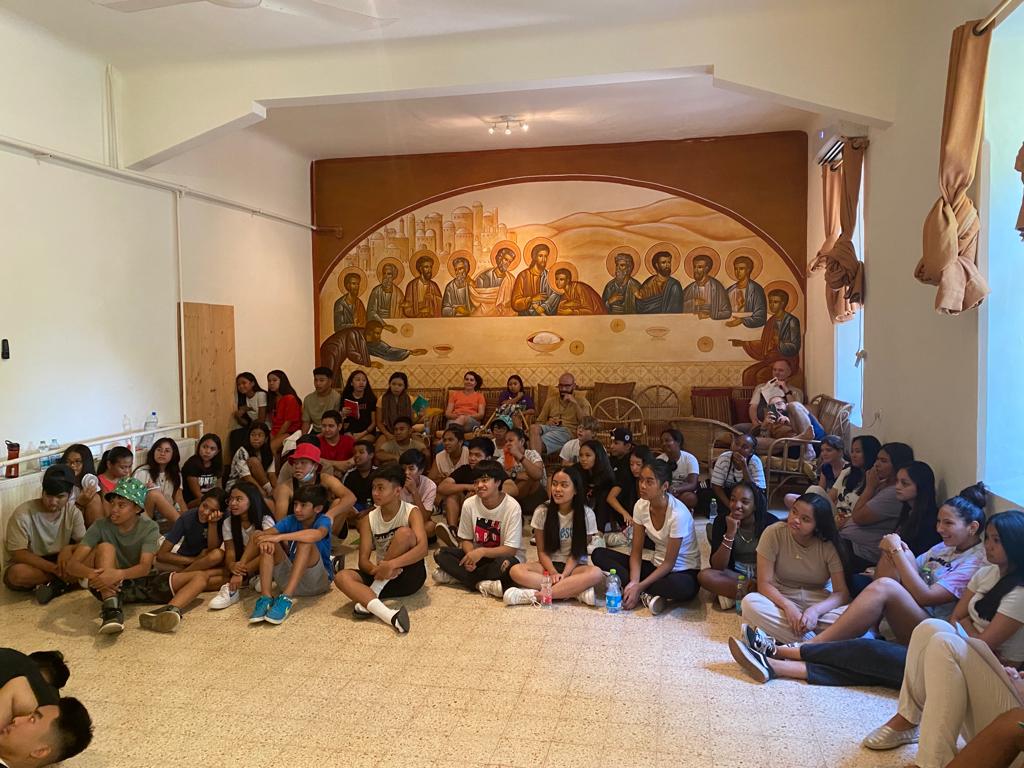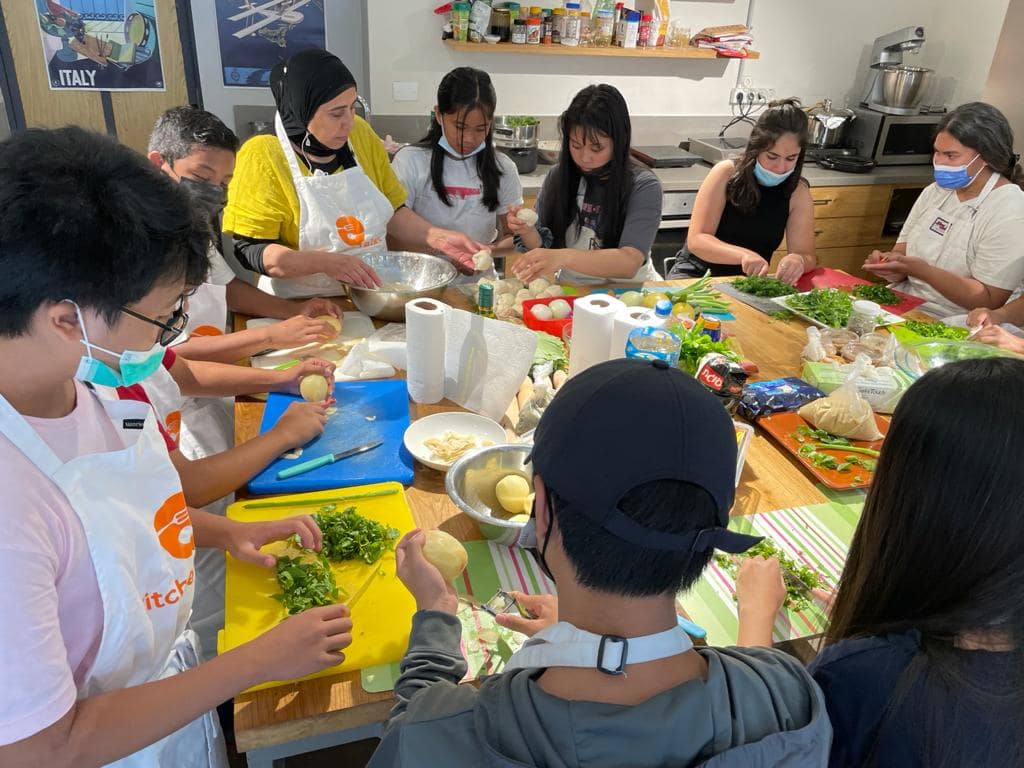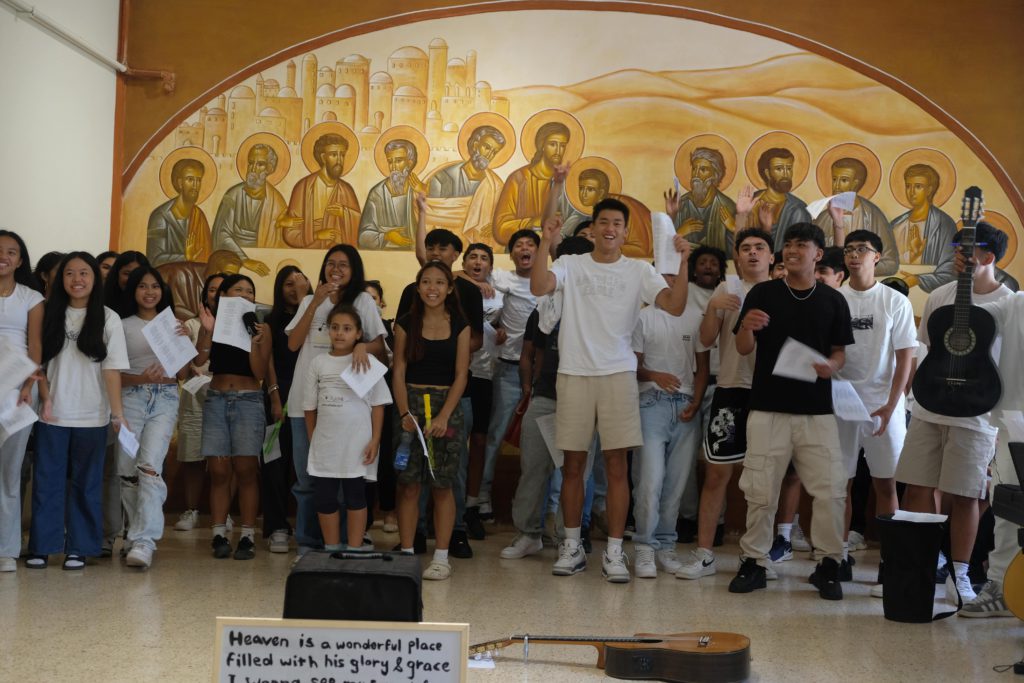On the World Day of Migrants and Refugees, 29 September, Aid to the Church in Need takes a closer look at this community which makes up a very significant portion of Christians in the Holy Land, where the Church is at the forefront of fighting for their rights.
Christians have lived in the Holy Land since the earliest times of the Church, and today, the traditional Palestinian Christian communities are facing difficulties for a variety of reasons. But a large portion of the Christians living in Israel are actually migrants and asylum seekers, and many of them have an even more difficult life than their Palestinian counterparts.
Official numbers are hard to come by, but according to several sources from the Latin Patriarchate of Jerusalem (LPJ), there could be up to 85,000 members of the Vicariate for Migrants and Asylum Seekers (VMAS), which was officially established under the Latin Patrirachate of Jerusalem in November 2021 to help with the pastoral care of Christians in this situation. “It is really very difficult to estimate numbers, and it is likely that the community is much bigger than people think, but it is a very important number,” says Sister Gabriele Penka, the administrator of the vicariate, during a meeting at the headquarters of the LPJ with a delegation from Aid to the Church in Need (ACN).
The vast majority of these Christians are poor migrants who travel to Israel to find work, and often endure very difficult conditions as they work in difficult jobs that nobody wants to do. Some of them are legal workers, but many are undocumented. A large number may have legally entered Israel, but meanwhile their visas have lapsed, and they remained in the country.
“The legal ones are protected to a certain extent by laws, but those in the country illegally have an extremely difficult life,” explains Sami el-Yousef, the CEO of the Latin Patriarchate. For example, he says, “they are not entitled to put their children in pre-schools for free, but they need to work, so if they have to pay for daycare that takes up most of their income.”
In many cases, the workers’ permits stipulate that they cannot have children or marry, so if they do, they immediately become illegal, and their children have few rights.
The situation for asylum seekers can be even more difficult. “Israel tells them that they have to work and show a payslip to obtain a visa, but at the same time, Israel will not officially declare that they have the right to work. They are told they need a payslip, but it is almost impossible to get one with no documents,” says Sister Gabriele. “We went to all the ministries related to this, and no one was able to give us a straight answer about what the legal status of these people is.”
Most drastic, for many of these Christians, is the fact that, at any given moment, the Government could deport them back to their home countries. “We could lose 20 ,000 of them from one moment to the next, if Israel decides,” says Sami el-Yousef, recalling an episode a few years ago when the Government reached an agreement with Ethiopia to deport several thousand asylum seekers. For now, however, Sister Gabriele believes that there is little risk of mass deportations. “Israel is benefitting from this community, and so they are turning a blind eye. They always leave it in a state of limbo.”
Rather, in the short-term, the expectation is that the number will actually increase significantly. Since the 7 October terrorist attacks, which set off the current war between Israel and Hamas in the Gaza Strip, Israel has blocked the vast majority of Palestinian labourers from entering Israeli territory to work, and is planning to replace them with migrants, specifically from India. According to Sister Gabriele, “there are new agreements for workers to come in, for construction. We asked our Indian priests to expect another 40,000 Indian Christians, but they say it will probably be less, because this new wave will probably be mostly Hindus, as they are from states with fewer Christians.”

The Latin Patriarchate has been doing what it can to help improve the situation of these Christians, by providing some humanitarian aid where necessary and operating kindergartens for those whose children are not entitled to free pre-school education by the Israeli state. “We have several daycare programmes. When migrants have children, if they don’t have places where they can leave the children, then they can’t work anymore, and we have seen some very drastic situations. In Jerusalem we have the after-school programme for children in their teens to go to in the afternoon. We have Israeli volunteers to help with homework, and so on, and we also run a home for up to ten or eleven young people in Jerusalem, from families that cannot provide a stable home. They stay with us during the week, and then return to their families,” says Sister Gabriele.
The Patriarchate has also helped to source priests to celebrate the sacraments for these communities in their respective languages, even though in most cases there are no churches available in the places where they live. “They are an unstable presence, but they are there. We have 60 communities throughout the country, in places that do not traditionally have a Christian presence, and they usually have to meet on Friday or Saturday – as that is the weekend in Israel – when there is no public transport. Most of the money we allocate to VMAS goes to rental of spaces where people can meet and pray, and this is a huge amount of money. We are looking at purchasing options, but the prices are not affordable,” says the Latin Patriarch Pierbattista Pizzaballa, during a meeting with the visiting ACN delegation.
Sometimes, rather than apartments, the migrants arrange for the rental of sports halls, but often they celebrate Mass in each other’s homes. “In some cases, we will see that the Sri Lankans, for instance, will celebrate in the home of a Buddhist compatriot, because it is the biggest,” Sister Gabriele explains.
A witness of Christian values
The migrants and asylum seekers travel to Israel in the hope of making a better life for themselves, but the unintended consequence of their presence has been to offer an expression of Christianity to the local Jewish community, explains George Akroush, director of the LPJ’s Project Development Office.

“Many of the migrants, mostly young ladies, work as caretakers for the elderly. Through their presence in the homes of local families, they provide the Jewish community with a different perspective of the Catholic Church, and with this they build bridges,” he says.
However, it is not only the Jewish community that benefits from this example. “Many of the local native Christians, even those who don’t need it, expect the Church to provide them with aid and they think the Church is rich. But the members of the VMAS are the opposite. They have nothing, but give to the Church anyway, and they are also fortifying the faith of the local Christians through their example. When we see these migrants, we are encouraged, we are not alone, these people are coming here and they have more difficult conditions than we do,” says George Akroush.
Currently the VMAS is served by more than 64 priests and religious sisters who care for their pastoral needs and receive financial support from the LPJ. The Patriarchate also provides funds for summer camps for the children, as well as marriage counselling, Bible studies, and liturgies. Other major expenses are health insurance for priests and religious, and daycare units for children.
ACN has been supporting the Vicariate for Migrants and Asylum Seekers in the Holy Land, through some of its projects with the Latin Patriarchate of Jerusalem, including the funding of summer camps for the children in these communities.


